Quan looked around the Ta Nang range. The upstream area cast mottled shadows over the dark green forests. The closer to the foot of the mountain, the fresh green forests surrounded the vacant lots that had just been cleared of rough vegetation. Quan calculated that in just under two more moons, as soon as the sun rose, the people in Dong, May, and Coi hamlets would start burning their fields and planting a new crop. Before then, Quan had to check everything.
For more than ten years, Quan had never had a full night's sleep. Just closing his eyes would bring vivid dreams of devastation, the smell of burnt flesh mixed with the smell of churned up earth and rocks. Quan always woke up late at night in the forest. Sometimes the crescent moon had just crept over the mountain range. Sometimes there was only thick darkness and the constant sound of owls echoing from the distant stream.
Ten years ago, after being discharged from the army, Quan took his wife and children to live separately, building a small house next to several hectares of reclaimed land for convenient planting. Bo Quan adapted to the sun and wind of the mountains and forests surprisingly quickly. Her six-year-old legs could run from one field to another. She happily inhaled the forest breeze, ran quickly into the camp to avoid the rain and caught gentle insects to play with. She especially had an endless love for wild fruits. She could have found ripe yellow thorn apples, sweet buffalo horn apples and bright orange berries in the green canopy. When she wasn't picking fruit, she would sit and draw on the ground with whatever she could find, sometimes with small pieces of plants, sometimes with pieces of charcoal in the kitchen. Foresters often joked that no matter where they left their child, she would never get lost, because if they followed the drawn marks, they would find her. The charcoal is black, but under Bo Quan's hands, forests appear one after another, and even the rainstorm that brings floods only stops behind the tall treetops. That's why Bo Quan's hands are always the color of leaf sap or smudged with charcoal, and his hair smells faintly of ripe fruit.
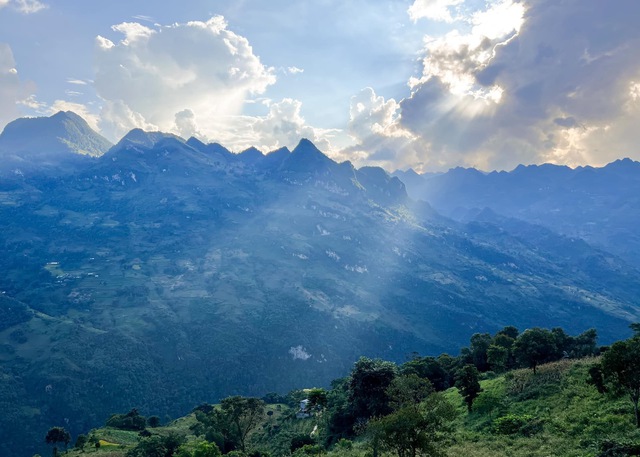
PHOTO: INDEPENDENCE
The house, neatly located under the shade of the ironwood tree, is divided into two compartments, one for sleeping, the other for cooking and eating, and for storing all sorts of things from hoes, shovels, and machetes to iron spoons with holes and countless bamboo tubes for sowing seeds. At the end of the lean-to, the sunken area due to rain or seepage is Bo Quan's private world . She brought home a bunch of civet seeds. After the summer, the civet fruits ripen yellow on the trees, the weasels and squirrels fight over them all day long, then drop a bunch of seeds at the base of the tree. When the civet seeds are roasted in the charcoal fire and the kernels are beaten, they have a rich, fatty, and slightly sweet taste. Bo Quan collects them, puts them in the wet, leaky place, and often watches them day after day, from when the shells are still golden brown until they quietly sprout two firm cotyledons. The little girl firmly affirms: "I will plant a lot of civet trees all over our farm. I will run from one side to the other without wearing a hat!" Quan heard his daughter speak but did not pay much attention because he was busy replacing the hoe handle that had broken while moving large rocks to the edge of the field, or sharpening the dull blade of the machete after the pruning season. When he looked back, he saw his daughter sleeping soundly on the doorstep.
For several days in a row, there was thunder at night. Quan still remembered his father often telling him, " Thunder on the mountain, carry your child and hide/Thunder under the sea, lie down and eat in a bunker." When Quan was still stationed at a unit near the sea, he rarely heard a rumble of thunder and each time, Quan missed home even more. Every year when the mountain thunder rumbled, it was as if a big flood would come that year. It was strange on this Ta Nang range, the sun would turn the trees crazy, so many people at the foot of the mountain waited for the rain to fall. When the rain finally came, the waterfalls and floods roared. So all year round, there were only two contrasting colors, the sun stood tall on the horizon, the clouds rose like smoke, and the sky was dark and gloomy because of the rain. Because of that harshness, the villages at the foot of the mountain also grew two types of red beans and upland rice, the type of rice that was planted in the holes in the rocks, rough and stubborn under the sun. When it rained, it was difficult for it to fall like the rice in the plains.
While blocking the mosquito net to block the thick black mosquitoes, Quan's wife said in the patchy light of the oil lamp: "It will probably rain in a few days. Tomorrow we will go back and burn all the dry trees to plant seeds in time." This red bean variety must be grown simultaneously, planted together, prepared together, flowered and fruited together and harvested in time for January. If any field does not have time to wait for the right rain to plant, just a few days later it will ripen late, at that time wild animals will gather to bite and destroy it, then it will be considered a total loss. "Are you still growing rice in the west this year? Remember to buy some more mouse traps." "Let's just leave it there, I'll figure it out." Quan said as he sat up to roll the tobacco leaves and put them on the wooden handle to cut into strips. The steady breathing of Bo Quan mixed with the chirping of insects.
In the morning, Quan's wife carefully pressed rice balls and roasted beans mixed with salt and crushed chili peppers so that Quan could go buy seeds and some supplies for the new crop. Quan calculated each item, leisurely buying a few more lampshades and kerosene because if the heavy rain continued, it would take several days to cross the stream. And no matter what was lacking, he would definitely buy Bo Quan a new wide-brimmed hat to cover his sunburned hair before the green hills that were his dream came true. He was about to start first grade!
The afternoon sun had just set when Quan returned to Dong hamlet at the foot of Ta Nang mountain range. Quan felt uneasy when he saw the camp where the farmers were resting, bustling with people. Smoke rose from the hillside and the birds' wings were scattered. It was not until someone pressed a plastic bag with a few mixed things into his hand that Quan seemed to wake up from his dream and fell to his knees. The house under the shade of the old mill suddenly became desolate and windy. That very night, the rain poured down like a waterfall. Floods from upstream rushed over the empty hills. Dong hamlet, May hamlet, and Coi hamlet now saw only vast expanses of water. It was not until noon three days later that the rain stopped, and wherever the flood receded, it left behind rotten trees and deep cracks dividing the hills. In that desolation, only the civet trees still stubbornly clung on. Their rough roots penetrated deep under many layers of soil and rock, so even though their broad branches were bent in the wind and rain, they still stood steadfastly.
For many years now, along with the scrap detector, Quan's footprints have been imprinted all over the Ta Nang range and beyond. Quan does not count the days and months but estimates the moon. Every full moon, Quan will return to the old house to get a few things, sew some more forest palm leaves to replace the leaky spots, and more importantly, bring a backpack of dried palm fruits to stack under the eaves. Quan sits in the same place where his little daughter used to sit. Quan paints the childhood dreams of six-year-old Bo Quan. The palm tree shoots follow Quan everywhere, spreading their roots through every rock cavity, stretching out belts around the fields. Sometimes, the hill Quan passes through still has many remaining mines, waiting for the local government to help remove them, so Quan has not returned for several full moons, but the small house is still warm and clean because the forest workers stop by. They put the first bunches of ripe palm fruits of the season on Bo Quan's small table, wiping the cobwebs from the eaves with a wide-brimmed hat hanging on the windy porch.
Every time she woke up from her dream, surrounded by the darkness of the night and the sound of deer in the dark abyss, Quan would hold Bo Quan's scarf to her cheek. The young leaf-colored scarf was burned and stained with Quan's tears, now turning into an old indigo color. That day must have been like any other day, Bo Quan had picked up a hat full of dried fruits, and before running across the hill, she had pulled the scarf up to cover her head. If only the thunder hadn't roared so loudly that his wife had hurriedly lit a fire to burn the dry vegetation. If only Bo Quan had been more absorbed in picking wild fruits on the hilltop a little further away. If only Quan hadn't left Ta Nang peak that day, perhaps in that deep hole would be his flesh mixed with rocks and soil... Quan gnawed at many "what ifs" through the full moons, through the fierce rains, and through the lonely years of the forest wind. After several accidents while burning vegetation because somewhere on these hills, there were still war bombs left, Quan mobilized everyone to clean the border belt carefully to prevent the fire from spreading and when lighting the fire, they had to stay far enough away to be safe, but that cruel deep hole was clearly visible before Quan's eyes.
After many years, the small house still has the faint scent of ripe fruit. Quan arranges the young civets in a basket woven from wild jute. After the rain, the Ta Nang range is green with leaves. Between the bean fields are green borders covered with civet trees. Among the many sounds of the forest, Quan seems to hear the sound of civet seeds stirring in the ground and the crisp laughter of Bo Quan as he runs from one hill to another...

Source: https://thanhnien.vn/mua-tren-dinh-ta-nang-truyen-ngan-du-thi-cua-nguyen-hau-185241024110901794.htm



![[Photo] General Secretary To Lam receives Chief of the Central Office of the Lao People's Revolutionary Party](https://vphoto.vietnam.vn/thumb/1200x675/vietnam/resource/IMAGE/2025/5/30/140435f4b39d4599a3d17975dfb444c5)
![[Photo] National Conference "100 years of Vietnamese Revolutionary Press accompanying the glorious cause of the Party and the nation"](https://vphoto.vietnam.vn/thumb/1200x675/vietnam/resource/IMAGE/2025/5/30/1cf6cd5c8a934ebfa347028dcb08358c)
![[Photo] Journalists moved to tears at the Memorial Service for the soldiers who died in Gac Ma](https://vphoto.vietnam.vn/thumb/1200x675/vietnam/resource/IMAGE/2025/5/30/9454613a55c54c16bf8c0efa51883456)

![[Photo] A delegation of 100 journalists from the Vietnam Journalists Association visits the soldiers and people of Truong Sa island district.](https://vphoto.vietnam.vn/thumb/1200x675/vietnam/resource/IMAGE/2025/5/30/0984a986227d4e988177f560d2e1563e)


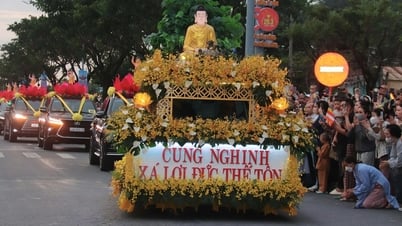





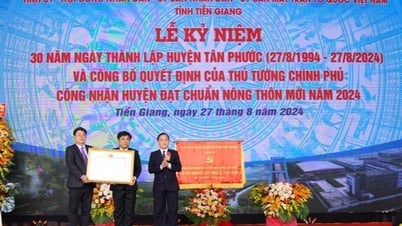








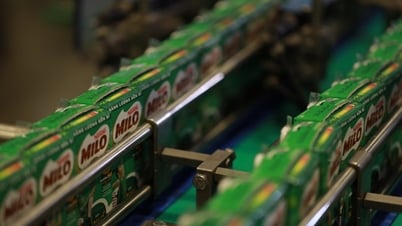








































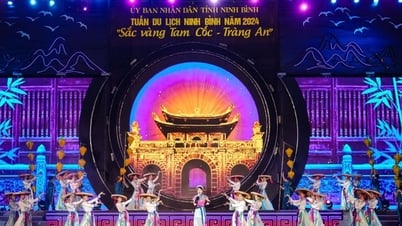










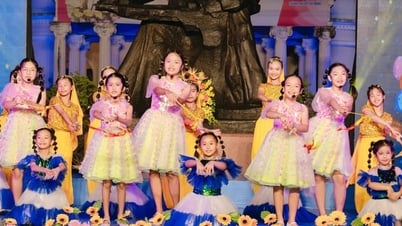
















Comment (0)